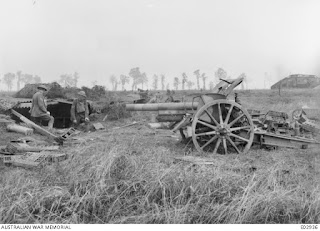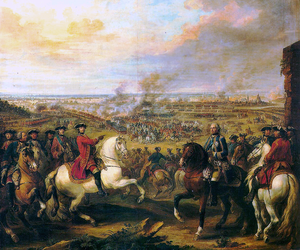 |
Portrait of Hermann,
1905 |
Hermann Karl Hesse was born on 2nd July 1877 in Calw in Württemberg, in the Black Forest area of Germany. His parents were Johannes Hesse, and his wife, Marie, nee Gundert. The Hesse family moved to Calw in 1873, where
Johannes worked for the Calwer Verlagsverein, a publishing firm. Marie's father, Hermann Gundert, managed the publishing house until Johannes Hesse took over from him in 1893.
During the First World War, Herman volunteered with the Imperial army, saying that he “could not sit inactively by a warm fireplace while other young authors were dying on the front”. However, he was found not fit enough to be a front line soldier and was assigned to service in charge of prisoners of war.
Critical of the conflict, he wrote: "That love is greater than hate, understanding greater than ire, peace nobler than war, this exactly is what this unholy World War should burn into our memories, more so than ever felt before." Hermann found himself in the middle of a serious political debate. He was attacked by the German press, received hate mail and was distanced from old friends. However, he did receive support from his friend Theodor Heuss, and the French writer Romain Rolland, who visited Hermann in August 1915. In 1917, Hesse wrote to Rolland, "The attempt ... to apply love to matters political has failed."
Hermann’s father died on 8th May 1916 and his son, Martin, became seriously ill. In addition, his wife suffered from schizophrenia. He was, therefore, forced to leave his military service and begin receiving psychotherapy. Thus began a preoccupation with psychoanalysis, through which Hermann got to know Carl Jung personally. During September and October 1917, Hermann wrote his novel “Demian” published after the Armistice in 1919 under the pen-name Emil Sinclair. Hermann was granted Swiss citizenship in 1923.
Among the best-known works of Hermann Hesse are "Demian", "Steppenwolf", "Siddhartha" and "The Glass Bead Game", which explore an individual's search for authenticity, self-knowledge and spirituality. In 1946, he was awarded the Nobel Prize for Literature.
Hermann died on 9th August 1962 and was buried in the cemetery of Sant’Abbondio in Gentilino, where his friend and biographer Hugo Ball and another German personality, the conductor Bruno Walter, are also buried.
Poetry collections by Hermann Hesse:
(1898) "Romantische Lieder" (Romantic Songs)
(1900) "Hinterlassene Schriften und Gedichte von Hermann Lauscher" (The Posthumous Writings and Poems of Hermann Lauscher)—with prose
(1970) "Poems" (21 poems written between 1899 and 1921)
(1975) "Crisis: Pages from a Diary"
(1979) "Hours in the Garden and Other Poems" (written during the same period as The Glass Bead Game)
Here is a WW1 poem by Hermann Hesse:
Denken an den Freund bei Nacht (September 1914)
Früh kommt in diesembösen Jahr der Herbst.
Ich geh bei Nacht im Feld, den kalten Wind am Hut,
Der Regen klirrt. Und du? Und du, mein Freund?
...
Du stehst - vielleicht -und siehst den Sichelmond.
Im kleinen Bogen über Wäldern gehen
Und Biwakfeuer rot im schwarzen Tal.
Du liegst - vielleicht - im Feld auf Stroh und schläfst,
Und über Stirn und Waffenrock fällt leicht der Tau.
Kann sein, du bist zu Pferde diese Nacht,
Vorpfosten, spähend unterwegs, Revolver in der Faust,
Flüsternd und kosend mit dem müden Gaul.
Vielleicht - ich denk’ mir’s so - bist du die Nacht
in einem fremden Schloß und Park zur Nacht
Und schreibst bei Kerzenlicht an einem Brief,
Und tippst am Flügel im Vorübergehn
An klingende Tasten -
- Und vielleicht
bist du schon still und tot. Und deinen lieben
ernsthaften Augen scheint der Tag nicht mehr,
Und deine liebe brauen Hand hängt welk,
Und deine weiße Stirne klafft. - O hätt ich,
hätt ich dir einmal noch am letzten Tage
dir etwas noch gezeigt, gesagt
von meiner Liebe, die zu schüchtern war!
Du kennst mich ja, du weißt ... und lächelnd nickst
du in die Nacht vor deinem fremden Schloß,
und nickst auf deinem Pferd im nassen Wald,
und nickst im Schlaf auf deiner harten Streu,
und denkst an mich und lächelst.
Und vielleicht
vielleicht kommst du einmal vom Krieg zurück
und eines Abends trittst du bei mir ein,
man spricht von Lüttich, Longwy, Dammerkirch,
und lächelst ernst, und alles ist wie einst,
und keiner sagt ein Wort von seiner Angst,
von seiner Liebe. Und mit einem Witz
Wirfst du die Angst, den Krieg, die bangen Nächte,
Das Wetterleuchten scheuer Männerfreundschaft
Ins kühle Nichtgewesensein zurück.
Thinking Of A Friend At Night (September 1914)
In this evil year, autumn comes early…
I walk by night in the field, alone, the rain clatters,
The wind on my hat…And you? And you, my friend?
You are standing—maybe—and seeing the sickle moon
Move in a small arc over the forests
And bivouac fire, red in the black valley.
You are lying—maybe—in a straw field and sleeping
And dew falls cold on your forehead and battle jacket.
It's possible tonight you're on horseback,
The farthest outpost, peering along, with a gun in your fist,
Smiling, whispering, to your exhausted horse.
Maybe—I keep imagining—you are spending the night
As a guest in a strange castle with a park
And writing a letter by candlelight, and tapping
On the piano keys by the window,
Groping for a sound…
—And maybe
You are already silent, already dead, and the day
Will shine no longer into your beloved
Serious eyes, and your beloved brown hand hangs wilted,
And your white forehead split open—Oh, if only,
If only, just once, that last day, I had shown you, told you
Something of my love, that was too timid to speak!
But you know me, you know…and, smiling, you nod
Tonight in front of your strange castle,
And you nod to your horse in the drenched forest,
And you nod to your sleep to your harsh clutter of straw,
And think about me, and smile.
And maybe,
Maybe some day you will come back from the war,
and take a walk with me some evening,
And somebody will talk about Longwy, Luttich, Dammerkirch,
And smile gravely, and everything will be as before,
And no one will speak a word of his worry,
Of his worry and tenderness by night in the field,
Of his love. And with a single joke
You will frighten away the worry, the war, the uneasy nights,
The summer lightning of shy human friendship,
Into the cool past that will never come back.
Translated by James Wright
From “Hermann Hesse poems: Selected and translated by James Wright” (Jonathan Cape, London, 1977 ) – pp 64 – 66. Original German from “Die Gedichte in Gesammelte Schriften” by Hermann Hesse (Suhrkamp Verlag, Berlin, 1953). With many thanks to writer, historian, translator and poet AC Benus for finding the original collection of that volume of Herman Hesse’s poems:
https://archive.org/details/bub_gb_Ev5KAAAAMAAJ/page/n7/mode/2up
Sources:
https://www.thivien.net/Hermann-Hesse/Ngh%C4%A9-v%E1%BB%81-b%E1%BA%A1n-trong-%C4%91%C3%AAm/poem-KOuHEO5KJHJKBIgQBENfbw
https://allpoetry.com/Thinking-Of-A-Friend-At-Night
https://www.gutenberg.org/files/41907/41907-h/41907-h.htm
The 1905 portrait of Hermann Hesse was painted by Ernst Würtenberger (1868–1934)
Hermann Hesse was also an artist. For more of his artwork see https://www.themarginalian.org/2022/06/08/hesse-trees/
 |
Cortivallo, 1927
by Hermann Hesse
|




















